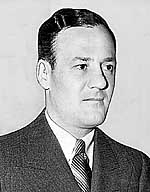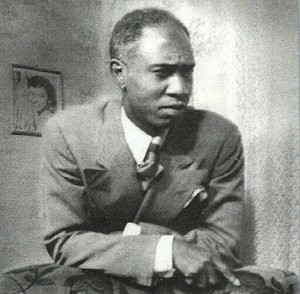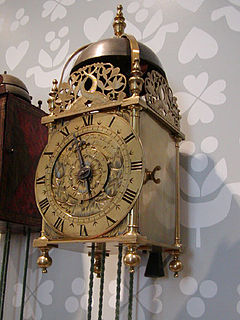
Clyde Anderson Tolson was the second-ranking official of the FBI from 1930 until 1972, from 1947 titled Associate Director, primarily responsible for personnel and discipline. He is best known as the protégé and long-time top deputy of FBI Director J. Edgar Hoover.

Wiley College is a private, historically black, liberal arts college in Marshall, Texas. Founded in 1873 by the Methodist Episcopal Church's Bishop Isaac Wiley and certified in 1882 by the Freedman's Aid Society, it is one of the oldest predominantly black colleges west of the Mississippi River.

The Worshipful Company of Clockmakers was established under a Royal Charter granted by King Charles I in 1631. It ranks sixty-first among the livery companies of the City of London, and comes under the jurisdiction of the Privy Council. The company established a library and its Museum in 1813, which is the oldest specific collection of clocks and watches worldwide. This is administered by the company's affiliated charity, the Clockmakers’ Charity, and is presently housed on the second floor of London's Science Museum. The modern aims of the company and its Museum are charitable and educational, in particular to promote and preserve clockmaking and watchmaking, which as of 2019 were added to the HCA Red List of Endangered Crafts.

Melvin Beaunorus Tolson was an American poet, educator, columnist, and politician. As a poet, he was influenced both by Modernism and the language and experiences of African Americans, and he was deeply influenced by his study of the Harlem Renaissance.

A clockmaker is an artisan who makes and/or repairs clocks. Since almost all clocks are now factory-made, most modern clockmakers only repair clocks. Modern clockmakers may be employed by jewellers, antique shops, and places devoted strictly to repairing clocks and watches. Clockmakers must be able to read blueprints and instructions for numerous types of clocks and time pieces that vary from antique clocks to modern time pieces in order to fix and make clocks or watches. The trade requires fine motor coordination as clockmakers must frequently work on devices with small gears and fine machinery.
A grandfather clock is a tall, freestanding, weight-driven pendulum clock with the pendulum held inside the tower or waist of the case. Clocks of this style are commonly 1.8–2.4 metres (6–8 feet) tall. The case often features elaborately carved ornamentation on the hood, which surrounds and frames the dial, or clock face. The English clockmaker William Clement is credited with the development of this form in 1670. Until the early 20th century, pendulum clocks were the world's most accurate timekeeping technology, and longcase clocks, due to their superior accuracy, served as time standards for households and businesses. Today they are kept mainly for their decorative and antique value, having been widely replaced by both analog and digital timekeeping.
Randall Tolson was a clockmaker who lived in Cold Spring Harbor, New York for most of his adult life. In 1932, he was brought to trial for the murder of his brother but was later acquitted. Details surrounding the later parts of his life are less resolved, but it is known that he began to make memorial clocks for his brother. The profits from the memorial clocks were used to support the Richard Tolson Memorial Clockworking Scholarship for first-year college freshman interested in learning the craft. However, funds for the scholarship soon ran out after Randall Tolson's untimely death in 1954. The memorial clocks are now highly collectible.

A lantern clock is a type of antique weight-driven wall clock, shaped like a lantern. They were the first type of clock widely used in private homes. They probably originated before 1500 but only became common after 1600; in Britain around 1620. They became obsolete in the 19th century.

The Clockmakers’ Museum in London, England, is believed to be the oldest collection specifically of clocks and watches in the world. The collection belongs to and is administered by the Clockmakers’ Charity, affiliated to the Worshipful Company of Clockmakers, founded in 1631 by Royal Charter. Since 2015 it has been housed in a gallery provided by the Science Museum in South Kensington, having formerly been located in the Guildhall complex in the City of London since 1874, where it first opened to the public. Admission is free.

Thomas Tompion (1639–1713) was an English clockmaker, watchmaker and mechanician who is still regarded to this day as the "Father of English Clockmaking". Tompion's work includes some of the most historic and important clocks and watches in the world, and can command very high prices whenever outstanding examples appear at auction. A plaque commemorates the house he shared on Fleet Street in London with his equally famous pupil and successor George Graham.

Cross Talk, released in 1980, is the ninth studio album by the English rock band Pretty Things.

Neil Tolson is an English former footballer who played in the Football League as a striker. He later moved onto a coaching career with Hyde, Altrincham and Stalybridge Celtic.
Tolson is a surname. Notable people with the surname include:

John Ellicott, was an eminent English clock and watchmaker of the 18th century.

J. Edgar is a 2011 American biographical drama film directed, produced and scored by Clint Eastwood. Written by Dustin Lance Black, the film focuses on the career of FBI director J. Edgar Hoover from the Palmer Raids onward. The film stars Leonardo DiCaprio, Armie Hammer, Naomi Watts, Josh Lucas, and Judi Dench. It marked Adam Driver's film debut.
John Tolson D.D. was an English academic administrator at the University of Oxford.

Helen Tolson was an English suffragette from Wilmslow in Cheshire active in the Women's Social and Political Union. She was repeatedly arrested in 1908 and 1909.
John Massey may refer to:

John Tolson (1691–1737) was an important if elusive English clockmaker and watchmaker of the early eighteenth century who, while not particularly remarkable for his invention, is noteworthy because of the fine quality of his clocks and watches. The style of his early longcase clocks owes much to Thomas Tompion, and the delicate functionality of his early longcase wheelwork echoes Tompion's standards. His short career of 22 years before an early death in 1737 makes his clocks and watches relatively rare and they can command high prices whenever outstanding examples appear at auction.













